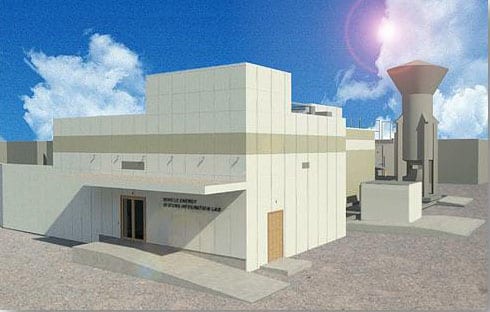GE Aviation has opened a $13 million Vehicle Energy Systems Integration Lab (VESIL), at its Evendale, Ohio facility, to improve thermal management capabilities for advanced combat aircraft applications, including GE’s adaptive cycle engine program in development for current and future Department of Defense fighter jets.
 Knowing that next-generation military aircraft will produce record levels of heat due to unprecedented radar, electronic, and weapon loads, GE is dedicated to finding solutions that the Department of Defense requires to improve mission capabilities. The engine is the best source to remove waste heat by burning fuel or rejecting it to bypass air.
Knowing that next-generation military aircraft will produce record levels of heat due to unprecedented radar, electronic, and weapon loads, GE is dedicated to finding solutions that the Department of Defense requires to improve mission capabilities. The engine is the best source to remove waste heat by burning fuel or rejecting it to bypass air.
The new lab is unique in its ability to test fuel, air, and heat in the same space, emulating the thermal loads of a full scale aircraft with future generation engine interfaces. The flexible lab can accommodate component testing through full subsystem and system integration. A state-of-the-art data acquisition system allows for the non-stop collection of 8000 variables every millisecond to ensure that every event is logged for evaluation.
The University of Cincinnati (UC) and the University of Cincinnati Research Institute (UCRI) provided $1.1M in additional equipment as part of a $5M Research and Development Center Attraction Program (RDCAP) grant to UC from the State of Ohio. GE and UC are collaborating on thermal management learning opportunities for UC engineering students.
Learn more about GE Aviation's military engines.
 Knowing that next-generation military aircraft will produce record levels of heat due to unprecedented radar, electronic, and weapon loads, GE is dedicated to finding solutions that the Department of Defense requires to improve mission capabilities. The engine is the best source to remove waste heat by burning fuel or rejecting it to bypass air.
Knowing that next-generation military aircraft will produce record levels of heat due to unprecedented radar, electronic, and weapon loads, GE is dedicated to finding solutions that the Department of Defense requires to improve mission capabilities. The engine is the best source to remove waste heat by burning fuel or rejecting it to bypass air.The new lab is unique in its ability to test fuel, air, and heat in the same space, emulating the thermal loads of a full scale aircraft with future generation engine interfaces. The flexible lab can accommodate component testing through full subsystem and system integration. A state-of-the-art data acquisition system allows for the non-stop collection of 8000 variables every millisecond to ensure that every event is logged for evaluation.
“VESIL allows us to learn how these complex thermal systems interact, rather than attempting to fix problems once the aircraft is built. Our findings could also be integrated into current applications, such as the Adaptive Engine Technology Development (AETD) program in which GE is proud to be partnering on with the Air Force Research Lab,” said Neil Garrigan, GE Aviation Advanced Products Executive Manager. “This lab accelerates the learning process and the development path to significant mission capabilities and cost savings for our customers,” he said.
The University of Cincinnati (UC) and the University of Cincinnati Research Institute (UCRI) provided $1.1M in additional equipment as part of a $5M Research and Development Center Attraction Program (RDCAP) grant to UC from the State of Ohio. GE and UC are collaborating on thermal management learning opportunities for UC engineering students.
Learn more about GE Aviation's military engines.





